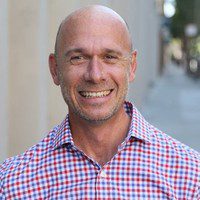Q1. What was your company’s unique approach in integrating technology to achieve UN’s Sustainable Development Goal (SDG)?
Husk has taken a 360 degree approach to innovation, looking at technology, business model and financing when determining how to best electrify communities in rural Africa and Asia that have never had an energy supply. The company uses a hybrid of solar, waste biomass gasification and batteries in its microgrids, enabling 24/7 power that is 100% renewable. Using “frugal innovation” that is appropriate for price-sensitive emerging economies, Husk has also developed a fully automated, digital business management system based on IoT and machine learning, allowing the company to remotely manage thousands of microgrids at once.
Q2. What are some examples of SDG-focused projects that your company is currently working on?
Husk has built the largest fleet of community solar microgrids across Africa and Asia. It currently has about 140 sites in India, Nigeria and Tanzania, and is targeting 10x growth to about 1,400 microgrids in the coming 4-5 years. In January 2022, it signed a UN Energy Compact to build 5,000 microgrids by 2030 and connect 1 million customers, half of them small businesses. Besides providing electricity, Husk is also serving its communities with a range of services, including agro-processing, irrigation and cold chain, e-mobility and clean water provision.
Q3. What are the most difficult challenges your company and other companies face generally in the implementation/adoption of new sustainable technology?
The rural microgrid industry is still relatively nascent, so it still faces numerous challenges. This includes conducive regulatory frameworks that ensure long-term sustainability of private developers like Husk. Another is limited access to affordable, long-term, local-current debt to build more projects to reduce foreign exchange risk. Lastly, developing business models create enough customer demand to ensure commercial viability over the life-time of the microgrids.
Q4. Tell me about a time your sustainable tech helped another company realize their SDG goals.
Husk not only provides renewable electricity to the community it serves, it also works closely with local micro, small and medium-sized enterprises (MSMEs) to help them transition away from diesel generation, thus reducing their emissions and helping them save money on their monthly energy expenses. Husk serves more than 6,000 MSMEs today and is targeting 500,000 by 2030.
Q5. What is the biggest challenge your company has handled while enabling your sustainable tech accessible to different communities?
Although contributing virtually nothing to the environmental shocks caused by climate change, the communities that Husk serves are actually the most “climate vulnerable”. Microgrids are a solution that can create more resiliency in rural Africa and Asia, but providing a decentralized solution that can still function and perform amid increased flooding, drought, heat etc. The disruption to supply chains because of the Covid pandemic also reinforced the role off-grid and weak grid microgrids can play in ensuring basic services like power.
Q6. Cost-effective sustainable tech can be lifesaving and planet-saving approach. What actions your company takes to make your sustainable tech economical and a fit for the large-scale adoption?
One of Husk’s core values is “frugal innovation”. Why? Because as a company started in the Global South by entrepreneurs from the Global South whose mission is to serve customers in the Global South, Husk understands that its solutions must be as cost effective and affordable as possible. As a result we have a business model that has resulted in the lowest cost energy in the microgrid industry. In addition, Husk has made digitization central to its business operations, and developed an automated management system based on IoT and machine learning that allows for Husk to manage 1000s of microgrids across vast areas.
Q7. What do you believe will be a global, long-term, impact of your sustainable tech integration?
In its Energy Company signed with the United Nations in 2022, Husk committed to several long term 2030 goals:
1) building 5,000 minigrids that connect 1 million customers, including 500,000 small businesses, and benefit 11 million people
2) installing 500 megawatts of standalone solar projects for rural commercial and industrial customers,
3) avoiding 7 megatons of CO2 emissions,
4) selling 5 million energy efficient appliances/machines to households and business to enable more economic and social benefit.
Q8. What’s your vision for the sustainable tech industry and your company’s role in it?
Energy is a building block for ending poverty, with is the starting point of the SDGs. Without access to reliable, modern, affordable and clean energy, we cannot achieve better health and educational outcomes, or help smallholder farmers raise their income levels by increasing crop yields, adding value to those crops and reducing food waste through cold chain. No can we ensure long-term resilience of communities facing increased climate disruption. Or provide purified water. And the list goes on. Energy is the golden thread that connects all of the SDGs.
William Brent
Chief Marketing Officer,
Husk Power Systems






















